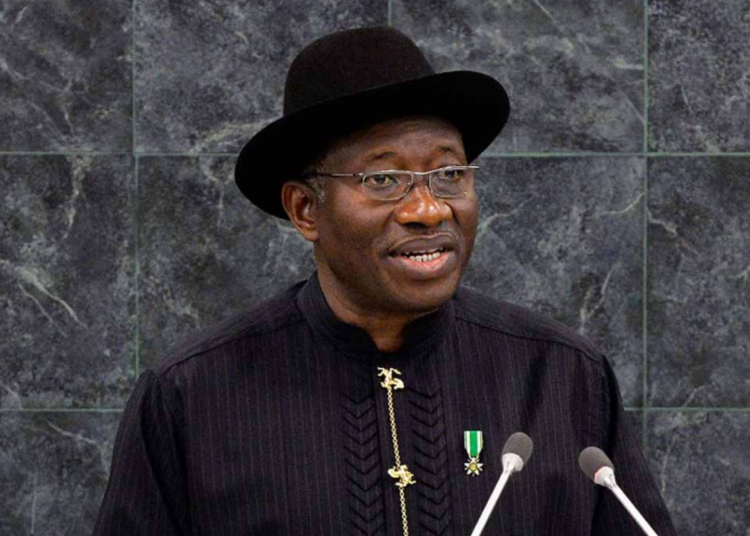Ten years after willingly conceding victory to the immediate past President Muhammadu Buhari, the executive secretary of the International Supreme Council for Peace in Africa (ISCP), Amb. Simeon Uwah has commended former President Goodluck Jonathan for such a patriotic decision.
Describing such action as a political masterstroke exemplification of a statesman, the African peace envoy noted that if decided otherwise, the country could have been thrown into turmoil, with the potential to reverse Nigeria’s fortunes several years backwards, given the prevailing tension in the polity.
He recalled that the victory concession midway, as votes were still being counted in the 2015 presidential election, would continue to remain a model for leadership in Africa’s nascent democracy, as it averted the avoidable bloodshed of many Nigerians.
Speaking with journalists in Uyo, Akwa Ibom State, in commemoration of Mr Jonathan’s decision a decade ago, Uwah stated that his decision to exit power would continue to be a case study for African sit-tight dictators who are in the habit of holding on to power in the face of growing discontent amongst followers
He recalled that “exactly 10 years ago today, on March 31, 2015, former Nigerian President Goodluck Jonathan made history by accepting defeat and conceding victory to then President Muhammadu Buhari, after a fiercely contested presidential election.”
“In an era where political leaders across Africa often resort to violence, electoral disputes, or unconstitutional manoeuvres to cling to power, Jonathan’s concession remains one of the most defining moments of African democratic maturity. Indeed, then, Nigeria’s democracy was draped in bright colours,” he noted.
Uwah remembered Jonathan’s decisive phone call to congratulate Buhari, adding that that singular act, which has echoed and reverberated across the world, has earned him accolades and several titles in the international community.
“His now-famous telephone call to Buhari was not just a gracious acceptance of electoral results but a deliberate commitment to peace, democracy, and national stability.
“That singular act prevented post-election violence, saved lives, and reinforced Nigeria’s democratic credentials on the global stage,” Uwah stressed, adding that “this will continue to serve as a model for Africa as the continent is confronted with a political crisis.”
“As Africa grapples with military coups, disputed elections, reversal of democratic gains, and authoritarian entrenchment, Jonathan’s approach remains a critical blueprint for democracy and governance reforms.
“With increasing political instability across the continent – from Guinea to Sudan, Gabon to Burkina Faso – institutionalising patriotic and democratic leadership is no longer an option; it is a necessity. Indeed, this direction should dictate the future for governance in Africa, or something worse may befall the continent,” he maintained.
According to the envoy, Jonathan’s peaceful concession should be taught as a case study in governance and training for African leaders.
Therefore, Uwah canvassed for the African Union (AU) and the Economic Community for West African States (ECOWAS) to institute peaceful handover and leadership transition as democratic standards to save the continent’s democracy from total collapse.
He advocated that “a political transition should be collaborative instead of adversarial while future leaders must embrace bipartisanship and national reconciliation as part of governance.”
Ten years later, he recalled Jonathan’s words, “My ambition is not worth the blood of any Nigerian,” still etched on the minds of Nigerians, and charged that “it is time for African leaders to adopt this mindset, not only in words but in action.”









